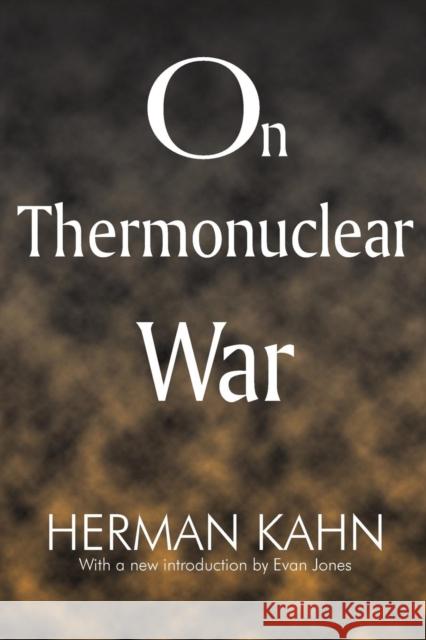On Thermonuclear War » książka
On Thermonuclear War
ISBN-13: 9781412806640 / Angielski / Miękka / 2007 / 690 str.
On Thermonuclear War
ISBN-13: 9781412806640 / Angielski / Miękka / 2007 / 690 str.
(netto: 233,18 VAT: 5%)
Najniższa cena z 30 dni: 221,59
ok. 16-18 dni roboczych.
Darmowa dostawa!
On Thermonuclear War was controversial when originally published and remains so today. It is iconoclastic, crosses disciplinary boundaries, and finally it is calm and compellingly reasonable. The book was widely read on both sides of the Iron Curtain and the result was serious revision in both Western and Soviet strategy and doctrine. As a result, both sides were better able to avoid disaster during the Cold War. The strategic concepts still apply: defense, local animosities, and the usual balance-of-power issues are still very much with us. Kahn's stated purpose in writing this book was simply: "avoiding disaster and buying time, without specifying the use of this time." By the late 1950s, with both sides H-bomb-armed, reason and time were in short supply. Kahn, a military analyst at Rand since 1948, understood that a defense based only on thermonuclear arnaments was inconceivable, morally questionable, and not credible.The book was the first to make sense of nuclear weapons. Originally created from a series of lectures, it provides insight into how policymakers consider such issues. One may agree with Kahn or disagree with him on specific issues, but he clearly defined the terrain of the argument. He also looks at other weapons of mass destruction such as biological and chemical, and the history of their use. The Cold War is over, but the nuclear genie is out of the bottle, and the lessons and principles developed in On Thermonuclear War apply as much to today's China, Russia, Iran, and North Korea as they did to the Soviets.











